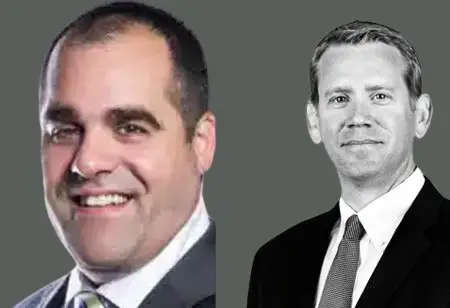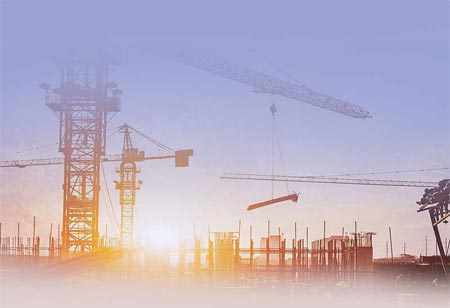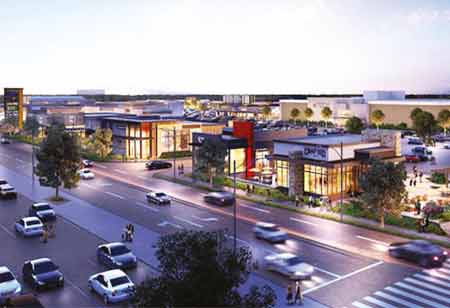Thank you for Subscribing to Construction Business Review Weekly Brief

The Macro-Environmental Factors Shaping the Future of Property Management
The application of prop-tech within the sphere of property management is being promoted and diversified by a wide range of transformative macro-environmental factors. More than ever before, technology needs are being driven by changing attitudes to the workplace, a greater need for flexibility, increased cyber risk, and an increased focus on ESG.
Unsurprisingly, the impact of the pandemic has had a significant impact on the workplace environment and how to manage it. With hybrid working replacing predominantly office-based working, managing agents are now required to better understand occupational patterns and surge time to manage areas like adequate hot desks, meeting rooms, and collaboration spaces, and timing of workplace conditions such as air quality, heating, and lighting. Customer-centric services have also come to the fore, with building managers increasing communication with building users about the location and services, particularly as people may be less familiar with what it offers.
In tandem, the “donut effect”, a hollowing out of some city centers due to hybrid working, means that property managers are more geographically dispersed and are needing to be better digitally connected as a result. An aspect of this shift is the need to provide the same user experience (UX) whether they are at the office, at home, or on their smartphones.
The outcome of this includes simpler technology (ease of use), smarter technology (predictive analytics), and personalized technology, all of which require managers to carefully curate the selection of operational tools to minimize friction for occupiers, their guests, and the public.
The ‘Hotelification’ of Workspace
The need for consumer-centric service, flexibility, and premium experience has put the office sector squarely into the world of hotels. Property managers will need to find ways of becoming fully integrated with the overall management and operation of sites. Delivering this “high-touch approach” is particularly important when delivering services-heavy third spaces.
Another feature of this new breed of workspace is the importance of the brand. Much the same as other high-value consumer sectors such as hotels and cars, the managers of today’s office environments will need to provide differentiated levels of services, to meet the varied needs of their customers and build a reputation. Customer relationship management software will undoubtedly play a role in this.
Building owners are now in a form of a direct-to-consumer market. The customer is anyone who passes through, or interacts with, the building or site. Broader skill sets are now required of managing agents. The bifurcation of technology and service roles means that property management firms need to recruit from a wider pool of candidates and from outside the usual real estate sphere, for example, the hospitality sector, design, technology, and the arts.
The Digitization of the Sector
The continuing evolution of technology will mean increasing adoption of Digital Twins, remote design, monitoring, and control, including VR and AR. All solutions that allow more proactive management of sites requires a higher level of technical expertise. AI & ML informs this but is not the outcome. This area supports and helps deliver many of the other factors on this “list”, including smarter technologies, frictionless experiences, and proactive management, alongside the ability to pivot spaces into new or mixed uses. It will also require property managers to increasingly compete with technology companies, primarily with respect to people acquisition.
In this new world, managing agents will be required to act as a conduit between occupiers and owners to ensure alignment of ESG requirements in both directions
Unfortunately, this does mean that reputational and cyber risks will become increasingly prevalent. Reputational risk expands exponentially in a B2C market where one wrong move can be damaging to a brand. Cyber risk is moving up everyone's risk profile as IoT devices increasingly expose fragile and interconnected networks based on old architecture (or new).
Managers must ensure staff have high levels of social media awareness and are IT literate, as well as considering wider threat risks (alongside pandemics). As above, this indicates an increasing requirement to recruit specialists.
The Climate Challenge
It would be impossible to conclude this article without discussing how the climate challenge is set to become the single biggest preoccupation for the sector as we move forward. In this new world, managing agents will be required to act as a conduit between occupiers and owners to ensure alignment of ESG requirements in both directions. All three parties must move in lockstep to achieve the required results, which include the decarbonization journey. With data analytics being the common language between all parties, those using the latest property-related climate tech tools will have an edge.
This complicated merger of macro-environmental factors is certainly shaking up the property management industry and the resulting new requirements will be met through a combination of general-purpose technology, sector-focused prop-tech, and a team of people with a customer experience focus. In the future, the role of a property manager will transition into a full-service operator — for those that are ambitious enough to grasp the opportunity and integrated enough to deliver it.








